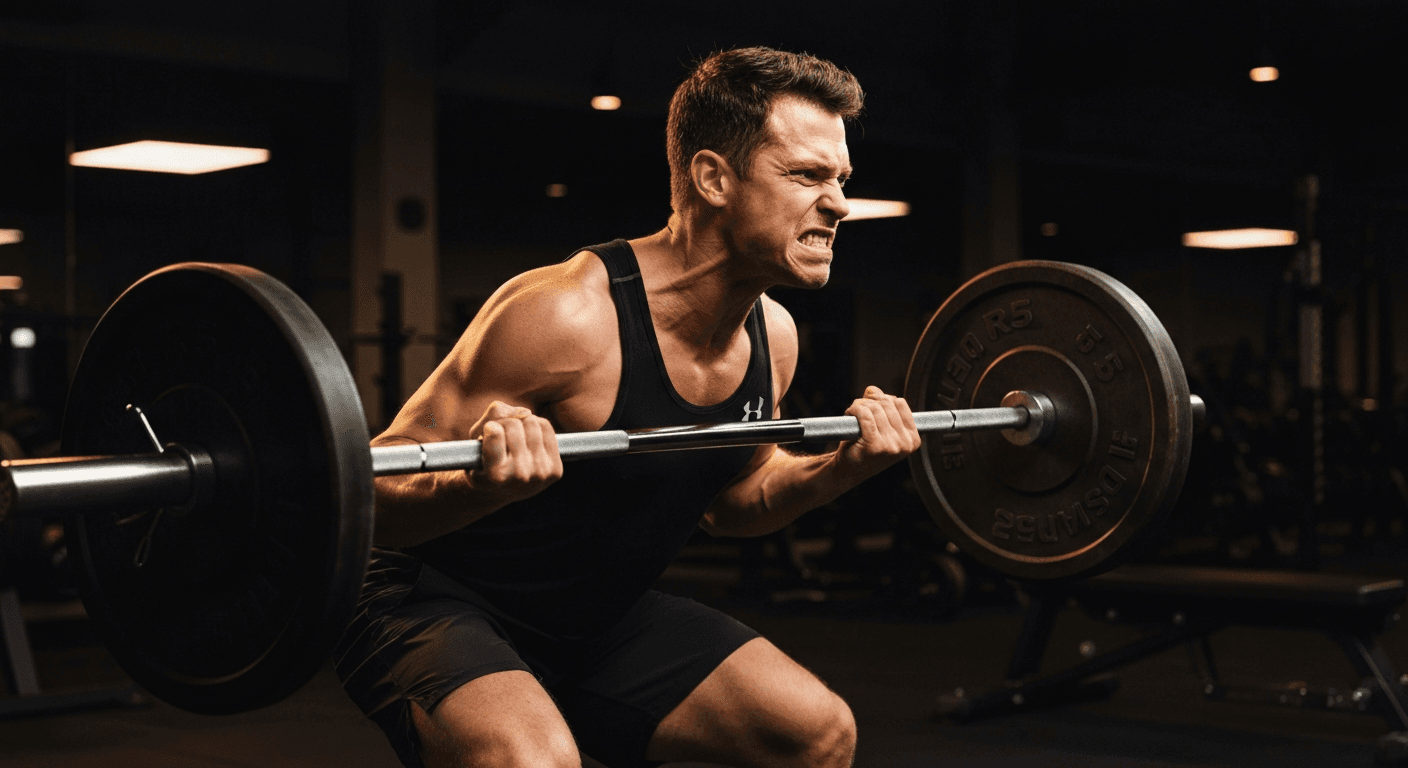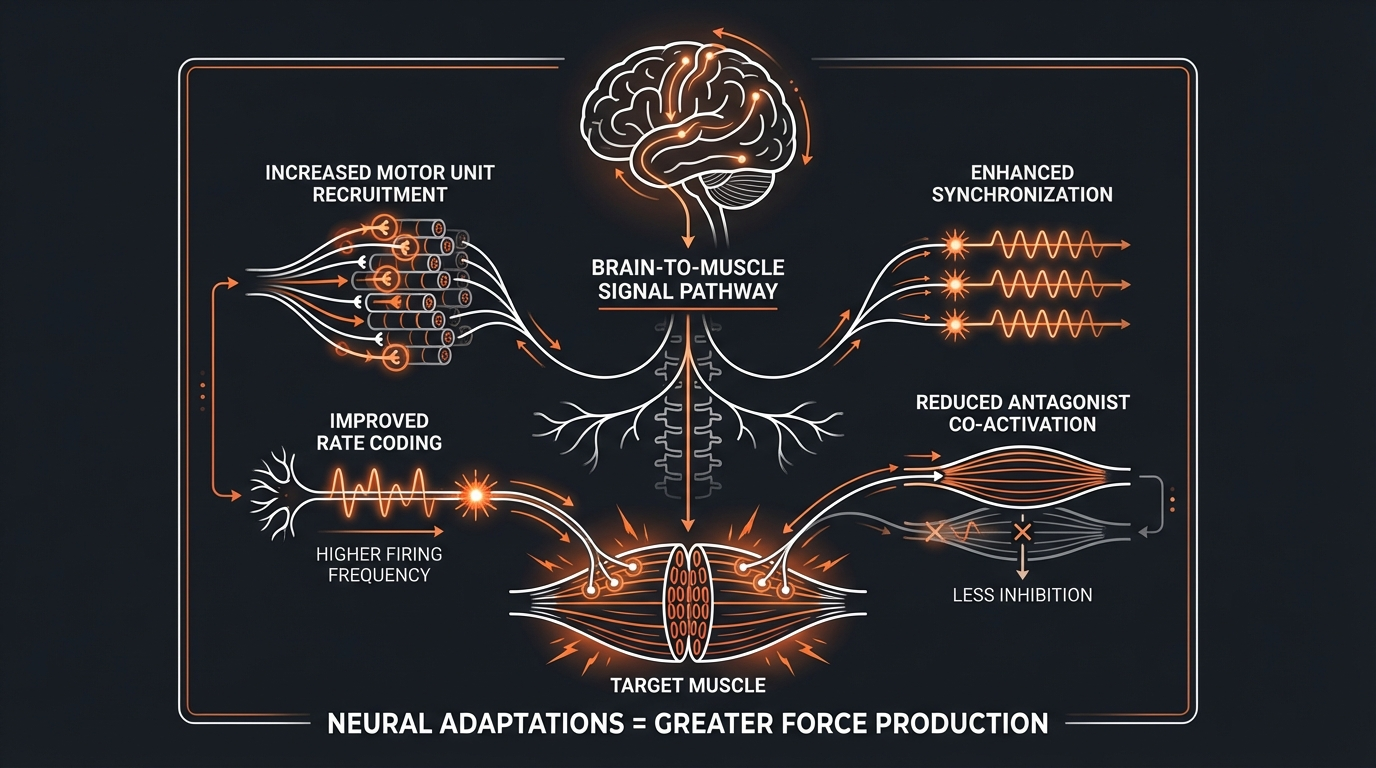Vegan and Vegetarian Strength Training: Meeting Nutritional Needs
Read our comprehensive guide on vegan and vegetarian strength training: meeting nutritional needs.

Key Takeaways
- You need 1.2 to 2.2 grams of protein per kilogram of body weight when training on a plant-based diet.
- Pair iron-rich foods like spinach and lentils with vitamin C sources like oranges to boost iron absorption.
- Mix different plant proteins throughout the day to get all essential amino acids instead of relying on just one source.
- Time your pre-workout meals to be high in carbs and moderate protein, then hit protein and carbs hard post-workout for recovery.
- Track your food intake with apps since it's harder to accidentally hit your nutrient targets on a plant-based diet.
Get a Free AI Coach on WhatsApp
Ask questions, get workout plans, and track your progress — all from WhatsApp.
Message Your CoachVegan and Vegetarian Strength Training: Meeting Nutritional Needs can be a game-changer for those looking to build muscle while adhering to a plant-based diet. Whether you're lifting weights for aesthetics, performance, or health, ensuring your nutritional needs are met is crucial for optimal results. This article delves deep into how vegans and vegetarians can successfully navigate their diet to support strength training.
Understanding Nutritional Requirements for Strength Training
Maintaining a proper diet is essential for anyone involved in strength training, but vegans and vegetarians face unique challenges. Protein, iron, and vitamin B12 are key nutrients often sourced from animal products, but they are vital for muscle repair, energy, and red blood cell production. Ensuring you get an adequate supply of these from plant-based sources can enhance your strength training regimen.

Key Nutrients for Vegan and Vegetarian Athletes
Meeting your nutritional needs involves more than just counting calories or protein grams. Here are some crucial nutrients to focus on:
- •Protein: Lentils, chickpeas, tofu, tempeh, quinoa, and seitan are excellent sources. Aim for 1.2 to 2.2 grams of protein per kilogram of body weight.
- •Iron: Spinach, lentils, chickpeas, pumpkin seeds, and quinoa can help meet your iron needs. Enhance absorption by coupling iron-rich foods with vitamin C sources like oranges and bell peppers.
- •Vitamin B12: Nutritional yeast and fortified plant milks are good sources. Consider a supplement if you find dietary intake insufficient.
- •Omega-3 Fatty Acids: Chia seeds, flaxseeds, and walnuts provide essential fats that support muscle recovery and cardiovascular health.
Incorporating these food items into your meals can ensure you receive a well-rounded intake of essential nutrients.
Meal Planning and Pre-Workout Nutrition
Structure your meals to support your training goals. A balanced meal plan will help maintain your energy levels and muscle glycogen stores. Here's how to organize your daily meals:
- •Breakfast: Aim for a mix of protein, carbs, and fats. A smoothie with plant-based protein powder, banana, spinach, and almond butter can kickstart your day.
- •Lunch: A hearty quinoa salad with chickpeas, veggies, and a tahini dressing provides sustained energy for afternoon workouts.
- •Dinner: Try a lentil and vegetable stir-fry or a tofu and sweet potato bowl.
- •Snacks: Carry portable options like trail mix, hummus with veggies, or protein bars to keep hunger at bay and support muscle repair.
Ensure your pre-workout meal is rich in carbs and moderate in protein to fuel your training. Post-workout, focus on a combination of protein and carbs to aid recovery.
Tips for Success and Common Mistakes to Avoid
Many vegan and vegetarian athletes thrive by paying close attention to their diet and avoiding common pitfalls. Here are some success tips and mistakes to avoid:
- •Track Your Intake: Use apps or food diaries to monitor nutrient intake and ensure you are meeting your needs.Diversify Protein Sources: Relying on a single source can limit your nutrient intake. Mix various plant-based proteins to cover all essential amino acids.
- •Don't Neglect Whole Foods: Supplements can help but should not replace nutrient-dense, whole foods. A well-balanced diet is the foundation of strength training success.
Data Point: According to a study published in the *Journal of the International Society of Sports Nutrition*, athletes who consume plant-based diets can effectively meet their protein needs for muscle repair and growth with careful planning.
Conclusion and Call to Action
Plant-based strength training is entirely possible and can be highly rewarding. By focusing on key nutrients, planning your meals, and avoiding common mistakes, you can meet your nutritional needs and achieve your fitness goals. Ready to elevate your training? Start incorporating these tips today! For more personalized advice, consider consulting a nutritionist or dietitian.
Meta Description: Discover essential tips for Vegan and Vegetarian Strength Training: Meeting Nutritional Needs, covering key nutrients, meal planning, and practical advice.
Tags: Vegan strength training, vegetarian bodybuilding, plant-based diet, muscle building, fitness nutrition
Frequently Asked Questions
- Can you build muscle on a vegan diet?
- Yes, plenty of serious lifters do it. You need about 0.7-1g of protein per pound of bodyweight from sources like tofu, tempeh, seitan, lentils, and protein powder. The main challenge is hitting your protein target, not any lack of "muscle-building quality" in plant protein.
- What's the best vegan protein source for lifters?
- Seitan leads the pack at around 25g protein per 3.5 oz serving with very few carbs. Tofu, tempeh, and edamame are also solid. For shakes, a blend of pea and rice protein matches whey's amino acid profile almost perfectly.
- Do vegetarian lifters need supplements?
- Creatine is the big one -- it's only found in meat, and supplementing 5g daily noticeably improves strength. Vitamin B12 is essential if you're fully vegan. Omega-3s from algae oil, vitamin D, and zinc are also worth considering since plant sources are limited.
- How much protein do vegan athletes actually need?
- Aim for 0.8-1g per pound of bodyweight, slightly higher than the recommendation for meat-eaters because plant proteins are less digestible. A 180 lb vegan lifter should target around 145-180g daily. It takes more planning but it's very doable.